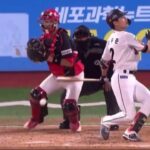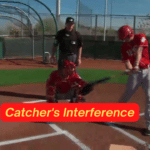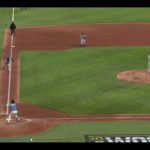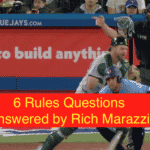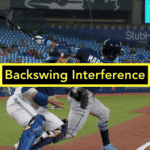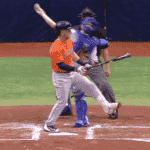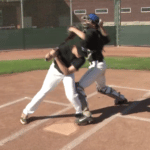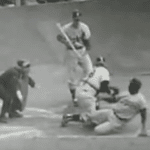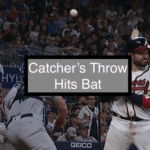BATTER INTERFERES WITH CATCHER
Rules 6.03(a)(3), 6.01(a)(1):
If the batter interferes with the catcher’s throw to retire a runner by stepping out of the batter’s box, the plate umpire shall call “Interference.” The batter is out and the ball is dead (provided the catcher’s initial throw does not retire the runner; see following paragraph). No player may advance on such interference (offensive interference), and all runners must return to the last base that was, in the judgment of the umpire, legally touched at the time of interference. Exception: The batter is not out if the catcher’s initial throw retires the runner, or if the runner trying to score is called out for batter’s interference.
If this infraction should occur in a situation where the catcher’s initial throw directly retires the runner despite the infraction, the play stands the same as if no violation had occurred, as it is to be assumed there was no actual interference and that the runner is out—not the batter. In this case, any other runners on base at the time may advance, as the ruling is that there is no actual interference if the runner is retired. In that case play proceeds just as if no violation had been called.
If the batter interferes with the catcher’s throw after the batter is out on strike three, the umpire shall call “Time,” and the runner is declared out for the batter’s interference. All other runners are returned to the base they previously occupied. (See also Play (2) in Interpretation #76 and Play (14) in Interpretation #58.)

